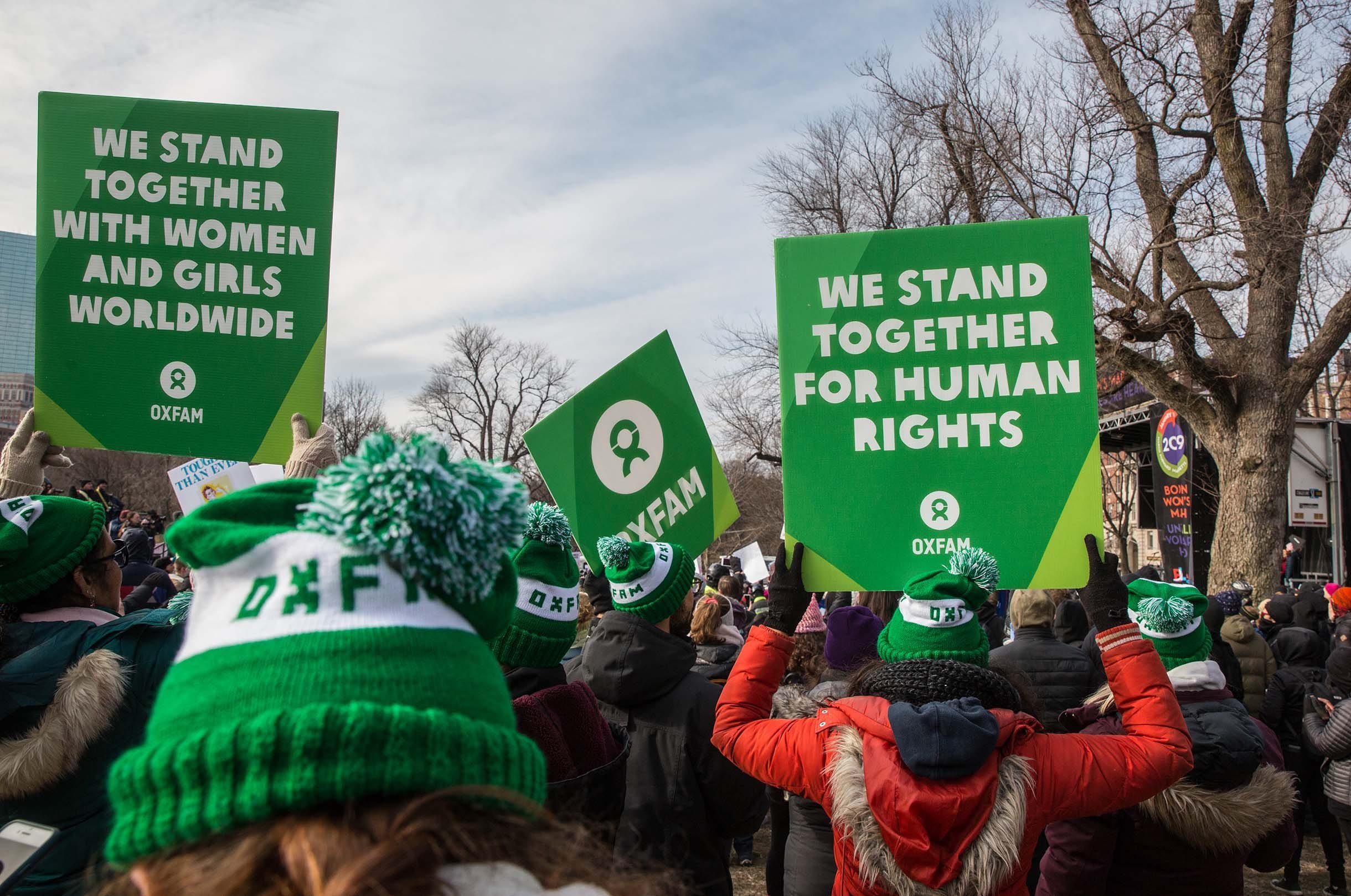What is Oxfam, what do we do, and how do we do it? Here’s the information you need.
1: Oxfam is a global organization that fights inequality to end poverty and injustice.
We offer lifesaving support in times of crisis and advocate for economic justice, gender equality, and climate action. We demand equal rights and equal treatment so that everyone can thrive, not just survive. We believe the future is equal.
2: Our donors have confidence in us.
Oxfam America is accredited by leading independent charity evaluators, including the BBB Wise Giving Alliance, a standards-based evaluator focusing on trust. Oxfam has also achieved the highest Platinum level transparency and accountability status with GuideStar, a philanthropic research organization that provides unbiased non-profit information for donors. These rankings place Oxfam among an elite group of charitable organizations nationally.
We know how important it is to spend every dollar wisely. The more efficient we are, the farther your dollar goes, and the more people we can help.
3: We partner with almost 2,400 local organizations and international allies to make change happen.

Decades of work have taught us to bring communities together. We connect people directly affected by poverty and injustice with legislators, public figures, and leaders in the private sector, public sector, and international financial institutions. We partner with local organizations worldwide to offer lifesaving support to those who need it today and to create long-term change for a more equal future.
Almost 1,400 partner organizations received financial support from Oxfam last year, and we worked together with more than 500 women's rights organizations along with more than 200 local humanitarian leadership groups. Most importantly, we work with our partners to learn—what they teach us about the best solutions to poverty is just as valuable as the funding and collaboration we provide them.
4: We believe that ending poverty and injustice is about fighting inequality and bringing people together.
Inequality sits at the center of our focus areas of work. We critically examine how this root cause of poverty and injustice shapes disparities around gender, race, and wealth. We make lasting change happen by bringing people together to build a more equal future.
When someone is denied the right to own land, the right to education, access to basic services like clean water, a fair price for the crops they grow, or a fair wage for the work they do, the result is poverty. Fighting inequality is an essential means to ending poverty and injustice.
5: The projects we fund are community driven.

Our local partners do the work, so the results are theirs. Locally informed and locally driven solutions to poverty are the best solutions—the most sustainable and the most appropriate—because they come from the people who can keep the initiatives going after Oxfam and our funding goes away.
6: Poverty puts people in harm's way.
Poverty makes people vulnerable to calamities—from armed conflicts to earthquakes. Poverty forces people to live in violent areas or to build their houses with flimsy materials in locations vulnerable to floods and landslides. But even the poorest countries can ensure local leaders have the funds and training they need to mount an effective disaster response, and prepare for future emergencies. We help people in vulnerable communities to reduce their risks, and to advocate with their governments to support their efforts.
7: We help people learn about their basic rights and how to defend them.

By educating people about their rights, we help to build strong communities that compel governments and other institutions to deliver on their responsibilities. When citizens hold their governments accountable, they can change the systems that keep people trapped in poverty.
8: Oxfam is a global organization with a massive reach.
Oxfam has more than 80 years of experience. Last year we worked with almost 2,400 local organizations and international allies in more than 75 countries. We know what it takes to end poverty and injustice and we are mobilizing people and resources worldwide to make it happen. In 2024-2025, we reached more than 14.3 million people in our humanitarian assistance and long-term advocacy and development initiatives.
9: Laws, policies, and institutions have an enormous impact on poverty and injustice.

Decision makers rarely consult poor people about major issues like international trade agreements, climate change, or how wealthy countries administer foreign aid programs that are supposed to help them. From the halls of Congress to the World Bank, we make sure the voices of the world’s poorest people are heard loud and clear. We bring our passionate supporters together to take action on big issues that keep people poor. Every action is powerful—signing a petition, pressuring big business, meeting with policymakers. When we speak as one, world leaders listen.
10: You can join the effort. Everyone—including you—has a part to play in the fight against inequality.
The story of our future starts with you. Ending poverty and injustice is possible, but it will take every one of us. With the power of many voices speaking together, we can call on companies and legislators to change the laws and practices that keep people in poverty. We can also raise awareness and inspire action on some of the world's most urgent issues. We can't do this alone. Please join our online community; we need your voice and your support. No matter who you are, or how busy you are, you can make a difference. The future is equal!